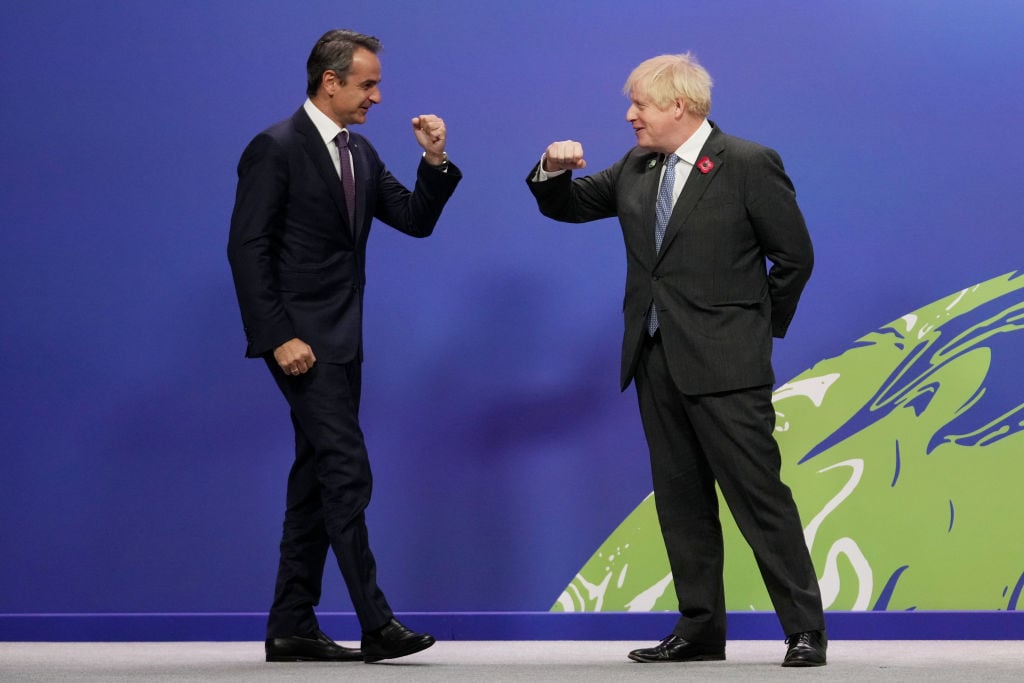
The prime minister of Greece is once again ramping up demands for Britain to return the Parthenon Marbles, also known as the Elgin Marbles, and this time by offering to loan other Greek artifacts to the U.K. in exchange for the ancient pedimental sculptures.
“Our position is very clear,” the Greek leader Kyriakos Mitsotakis told the Daily Telegraph last week. “The marbles were stolen in the 19th century; they belong in the Acropolis Museum and we need to discuss this issue in earnest.”
Mitsotakis said he plans to discuss the issue with U.K. Prime Minister Boris Johnson in a meeting between the two prime ministers scheduled for tomorrow, November 16, in London. “I am sure that if there was a willingness on the part of the government to move we could find an arrangement with the British Museum in terms of us sending abroad cultural treasures on loan, which have never left the country.”
Sculptures which form part of the “Elgin Marbles,” taken from the Parthenon in Athens, Greece almost two hundred years ago by the British aristocrat, the Earl of Elgin, are on display January 21, 2002 at the British Museum in London, England. Photo by Graham Barclay, BWP Media/Getty Images.
The subject of an often bitter stalemate between the two nations—and a symbol of the debate around cultural restitution worldwide—the 2,500-year-old Parthenon Marbles were removed from Greece by British ambassador Lord Elgin between 1801 and 1812. They’ve remained in the collection of the British Museum since.
Johnson, for his part, has shown no plans to acquiesce to Athens’s demands. “I understand the strong feelings of the Greek people—and indeed Prime Minister Mitsotakis—on the issue,” he told the Greek newspaper Ta Nea earlier this year. “But the U.K. government has a firm, longstanding position on the sculptures, which is that they were legally acquired by Lord Elgin under the appropriate laws of the time and have been legally owned by the British Museum’s trustees since their acquisition.”
The U.K. government doubled down on Johnson’s stance this fall after members of a UNESCO intergovernmental commission unanimously agreed that the marbles should be returned to Greece.
Greek Prime Minister Kyriakos Mitsotakis gives a speech during the 75th anniversary celebrations of The United Nations Educational, Scientific and Cultural Organization (UNESCO) at UNESCO headquarters in Paris on November 12, 2021. Photo: Julien de Rosa/AFP via Getty Images.
Mitsotakis characterized the decision as a “pivotal step” in his government’s restitution efforts, noting that, for the first time, the U.N. commission recognized “that the case has an intergovernmental character and therefore the obligation to return the Parthenon sculptures lies squarely on the UK government.”
Further fueling his argument is the fact that the marbles have been off public display for nearly a year due to the pandemic and water damage in the Greek galleries at the British Museum. (The galleries are expected to reopen December 13.)
“Refusing to discuss the topic seems to me, given the context of everything that has been happening in terms of the return of cultural treasures, to be rather an anachronistic approach,” Mitsotakis said. “It would be a fantastic statement by what Boris calls Global Britain if they were to move on this and look at it through a completely different lens.”